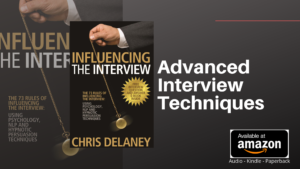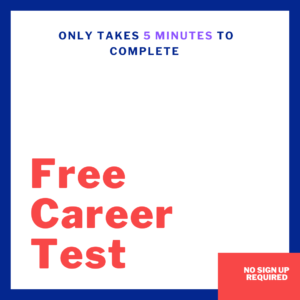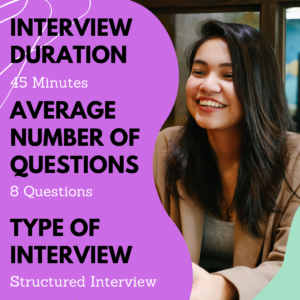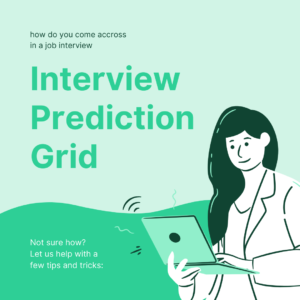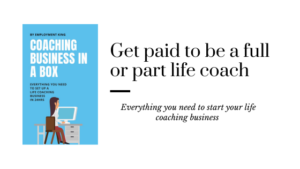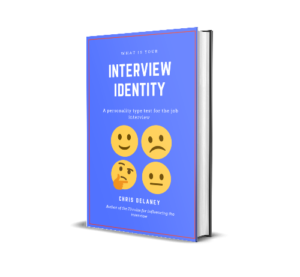Interview Questions and Answers for a Career Advisor
The career guidance job market is crowded.
This competitive sector has applicants applying for advertised roles who come from a number of backgrounds; career counselling, post-grad CEIAG advisors, school career advisors, higher educational career guidance officers and professionals making a side-career move from, as an example, a probation officer, school teacher or public sector worker role.
Vacancies is the career sector are starting to increase; with schools now having to meet government GATSBY benchmarks more high schools, colleges and higher educational institutes are recruiting career guidance officers. Job centers are also seeing the need for a skilled practitioner to support job seekers to make informed career decisions, and many growth sectors employ specialist career advisors to promote the roles available in each job sector.
Career Guidance Officer Job Role
To prepare for a career guidance job interview it is important that the applicant understands the job role they are applying for, as each role varies depending on the employer, the customers or service users age group and job sector.
As an example, one career advisor maybe employed to deliver 1-to-1 face-to-face career guidance sessions, while another delivers online career information or delivers group sessions.
A career advisor attached to a job center is more likely to focus employability advice compared to a college career advisor who will be giving higher educational advice. Some roles require specialist advice; understanding the barriers of widening participation or the various roles of a particular job sector.
Therefore, this article aims to provide the job interview questions and answers for the most common career guidance Q&As, that are likely to be asked in all career advisor job interviews.
8 of the Most Commonly Asked Career Guidance Job Interview Questions and Answers
Each Interview question will be broken down and explored. Answers can be based on the information provided but must be tailored to an applicants own work experience, skills and qualities.
CEIAG Interview Question 1: Can you breakdown your relevant career officer experience and state how it is useful in this role?
When answering the ‘experience’ interview question, it is important to state experiences related to the job role – the information, advice and guidance knowledge for the target group (children or adults, job seekers or university students) that the company supports.
It is also good to highlight an understanding of career theories and models, as this shows sector knowledge.
As the job role is about supporting people, often vulnerable clients, and requires a level of work ethic, at this stage of the job interview, applicants can increase likeability by showing ‘passion’ for the job role.
Interview answer formula
- Give duration in the industry
- State level of qualification
- Give example of working with a similar target group
- End by refencing your passion for ‘helping’ people
CEIAG Interview Question 2: Explain the difference between IAG (information, advice and guidance)?
There will be several technical question during the career guidance interview, with the most common one asking for the explanation between the different aspects of the role.
First, if unknown, applicants need to read up on the meaning of Information, Advice and Guidance.
In short;
- Information is passing on knowledge or facts often collected from a credible source.
- Advice is a professional judgement, encouraging the customer to take action – this is the practitioners opinion based on research and studies.
- Guidance is the practitioner supporting the customer to make their own decisions through self-reflective and challenging questions (not by being given advice)
The interview answer should end, once an explanation of the terminology has been given, by stating, with examples, the best situation to use each of the three elements of IAG.
As a side note the ‘CE’ of CEIAG means ‘careers education’.
CEIAG Interview Question 3: Give an example of when you have worked with a client who had a fixed career idea, and explain what you did?
To help clients to make informed career opinions, the practitioners job is to challenge the clients perceived career ideas.
It is not the career advisors role to decide which career best suits the client, as unconscious bias can be at play here, rather the role of a career advisor is to help the customer to make an informed opinion.
There are many theories around career guidance that a career practitioner needs to understand but as an overarching rule; just because a client stats they want to move into X career doesn’t necessarily mean the career goal is their best option, as their decision may have been influenced or their awareness of options maybe limited.
As an example, a client may want to enter the world of work because this is what their family and peers did.
To answer the situational interview question:
- Describe the situation; the client and their job goal.
- Explain how you question what the client liked about this career goal.
- And how you asked what they felt they wouldn’t enjoy.
- Next give evidence of how you challenged this career goal – this could be in the form of comparing two similar job roles, asking the miracle question or having a conversation around the pro’s and con’s of the different routes into higher education or a career.
- Finally, explain the outcome to the conversation, clearly stating the clients mindset.
CEIAG Interview Question 4: What research do you undertake to help give informed advice?
Working in a industry that advises on other job sectors, advice can easily become dated. Career practitioners, therefore, need to stay abreast of new local market information. This can include growth sector by area, new qualifications such as T-Levels, student loan information and emerging career trends…the list becomes endless.
For some career guidance roles, the practitioner may also be responsible for giving ‘supportive’ advice on housing, offender management and finances.
It is important then to understand the job role, the clientele and the area of IAG to be given, and use this insight to answer the interview question.
For this example we will use LMI – local market information.
When discussing the undertaken research don’t make the mistake of simply explaining how you attended X webinar or Y training course. This is a low scoring answer.
To score high, explain the reason why you chosen to research, as an example, local market information. How does knowing about LMI help a career practitioner?
Next, explain what you gained from the research and finally, give an example of how the research help you to help a client during an IAG session.
You can also round the answer of by explaining how you are a life long learner and you continue to update your knowledge and expertise by periodically conducting research.
But the golden interview answer will go to those career practitioners who have built upon other peoples research to find news ways of working with a niche group of clients or within a specialized area.
CEIAG Interview Question 5: Give an example of working with an angry service user?
There are numerous ways this question will be asked:
- How would you motivate an unmotivated client?
- How do you handle a client with unrealistic career goals?
- Explain what you would do if a client wouldn’t answer your questions?
- Give an example of building rapport with a difficult service user?
- Have you ever had a client get violent?
The interview question will be phrased depending on the IAG sub-niche the advertised job role is in. But in 9 out 10 career advisor interviews, a situational question around a client’s behavior will be asked.
Most interviewees will be able to answer this question with a real-life example as none-experienced career advisors will have undertaken a placement as part of their CEIAG course, and experienced career practitioners will have several examples.
The following steps can be used to create a strong stcruture for the interview answer
- Confirm experience confidently “I have had to deal with this situation on many occasions….”
- State overview “…an example of this was when (explain the situation)…”
- Give specifics “…the client was X (quite/angry/annoyed) because of Y(been turned down for benefits/forced to attend the session/in a bad mood)…”
- Action “…to support the client I (add detailed explanation of what you did to turn the situation around)..”
- Outcome “…this resulted in…”
CEIAG Interview Questions 6: What do you understand by the ‘contracting’ part of an IAG session?
The contracting stage of an intervention is very important and is used in many therapeutic settings. The contract is an agreement between the practitioner and client is transparent ensuring each party fully understands the processes of the sessions.
In career guidance sessions the contract will cover
- Duration of session/number of sessions
- An explanation of data protection and GDPR
- Confidentiality and record keeping
- The session aims
- Explanation of safe guarding
- Impartiality
Interviewees need to explain their understanding of ‘contracting’ and give an example of using contracting in an intervention.
- Explain how you started a session discussing contracting and how you talked about, as an example, safeguarding.
- Go on to state how the client disclosed a concern.
- Next, explain how you reacted to the information, informing the client, as you stated in the contracting stage of the session, what steps you needed to take.
- Finally, give the outcome to the intervention.
CEIAG Interview Question 7: When would you make a referral?
As career advisors support clients with various issues, most career practitioners wont be an expert in all things. Therefore career advisors will often make referrals to different agencies from a job center referral for a benefit application to social services for safeguarding concerns.
To answer questions on referrals it is important to explain how you only refer to approved referral agencies, how you report on referrals (internal recording systems) and how the referral has been followed up to check progression.
CEIAG Interview Question 8: Is there anything you would like to ask us?
At the end of the career guidance officer interview the employer will end the interview by allowing the candidate to ask them questions about the job role, organisation and day to day duties.
It is important for an applicant to think about their ideal job role – how they work best, and ask questions to the employer based around their ideal. Once offered a job role(s) the answers to these questions help the applicant decide if they should take the offer position or not.
- What’s a typical day as career advisor like here?
- Is the job role office based or outreach?
- Which agencies do you collaborate with?
- What CPD do you put staff through?
- What is staff retention like?
- What projects are you currently working on?
- What is the next tender you are applying for?
- Where do you get your funding from?




